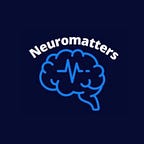Exploring Huntington’s Disease
Huntington’s disease is a genetically inherited disease that results in the degeneration of nerve cells within the brain. The root cause of Huntington’s Disease is the defective gene on chromosome 4. Defects like this are considered “dominant,” meaning that any individual inheriting it from a parent will eventually have the condition. The disease was named after George Huntington, the physician who discovered it in the late 1800s. Huntington’s Disease can affect an individual’s ability to move, think, and cope with other psychiatric problems. It can develop at any time, but tends to occur in people who are in their 30s or 40s. When Huntington’s Disease manifests in children and young adults, it is referred to as juvenile Huntington’s disease.
A CLOSER LOOK
Huntington’s Disease causes neurons to die in various parts of the brain, namely those that control voluntary movement. This is caused by mutations in the HTT gene.
The HTT gene is responsible for providing instructions to construct a protein known as Huntingtin. Although the function of the protein is yet to be discovered, researchers understand it to be significant to neurons.
This mutation that causes Huntington’s involves a DNA segment known as the CAG Trinucleotide repeat. This segment contains three nucleotide bases: Cytosine, Adenine, and Guanine. Typically, a CAG segment is repeated 10 to 35 times in the gene. However, in those that have Huntington’s, it is found to be repeated 36 to over 120 times.
Those with 36 to 39 repeats don’t always develop symptoms of Huntington’s, but those with over 40 almost always do. Individuals with 27–35 repeats are at risk of having children that develop the disorder.
An increase in the length of the CAG segment results in an abnormally long Huntingtin protein. This protein is then cut into smaller portions and eventually accumulates in the neurons, disrupting their function.
Huntington’s Disease is an autosomal dominant disorder, meaning that the affected individual only needs to receive one copy of the mutated gene to be affected. Excluding the sex chromosome, everyone receives two copies of each gene: one from each parent.
A parent with the defective gene could pass on the defective or the healthy copy of the gene. Therefore, every child in that family would have a 50% chance of inheriting the genetic disorder.
Listed below are other common names for Huntington’s Disease:
- Huntington chorea
- Huntington chronic progressive hereditary chorea
- Huntington’s chorea
- Huntington’s disease
SYMPTOMS OF HUNTINGTON’S DISEASE
Huntington’s disease displays symptoms in categories of movement, cognitive and psychiatric disorders. Symptoms are different for every person, but they largely revolve around mobility and processing.
Movement disorder symptoms:
- Chorea (severe jerking or writhing)
- Dystonia (muscle stiffness and pain)
- Slowed eye movements and unstable posture
- Difficulty in conversing and eating
These symptoms greatly affect the person’s ability to go about their daily lives and communicate with others (physical pain and impact). When suffering from these symptoms, simple activities like eating or talking become increasingly difficult and painful.
Psychiatric disorder symptoms:
- Extreme emotional pain: depression, anger, indifference
- Reclusive behaviour (straying away from society)
- Insomnia and loss of energy
- Inclination to die and commit suicide
These symptoms can cause patients to stray away from society, resulting in poor mental health.
Cognitive disorder symptoms:
- Concentration failures and organizing difficulties
- loss of control over thoughts and emotions which can result in outbursts (sexual highs and lows)
- processing/ learning difficulties and loss of environment awareness
Finally, the cognitive disorder symptoms often involve difficulties in overall brain processing. This can cause problems in thinking and having control over decisions. When suffering from the symptoms above, patients can find themselves having sudden outbursts in situations.
TREATING HUNTINGTON’S DISEASE
Huntington’s Disease has no direct cure. However, there are medications that can decrease the effects of HD. Additionally, various treatments and medications work for different individuals.
Medications for movement disorders include drugs to control movement, antipsychotic drugs, and other drugs like risperidone or olanzapine (must be used with caution and could result in worse side effects).
The medications for psychiatric disorders include antidepressants, antipsychotic drugs and mood-stabilizing drugs (which also have negative side effects but can help prevent highs and lows over loss of control).
There are also therapies that can help with coping and managing the symptoms of Huntington’s disease. These therapies include psychotherapy (talking to a psychiatrist or psychologist who can help you manage and work towards solutions for symptoms), speech therapy (this can help your loss of muscle control in the mouth and throat, and speech therapists teach you how to use communication devices), physical therapy (physical therapists teach you safe exercises to build your broken strengths and work on movement problem targeted workouts and plans), and occupational therapy (this helps you improve functional ability and teach you how to use assistive devices for completing activities like dressing or going to the washroom).
TO WRAP IT UP
A diagnosis of a rare disease with no solid treatment stirs feelings of defeat and hopelessness in the affected individual. Nevertheless, with the world rapidly advancing, new technologies and treatments spark new hope to resolve this problem. For example, the University of Barcelona has found a potential therapeutic target for the treatment of the disease. In the meantime, since such technologies are under experimentation, medications provide another option to mitigate and slow down the disease to enable the patient to function for as long as possible. Along with medications, emotional and physical support is greatly advised to uplift the patient to provide a sense of hope to live longer.
CONNECT WITH US ON SOCIAL MEDIA:
Instagram: @neuromatters
LinkedIn: https://www.linkedin.com/company/neuromatters-canada
Email: neuromatters.canada@gmail.com
